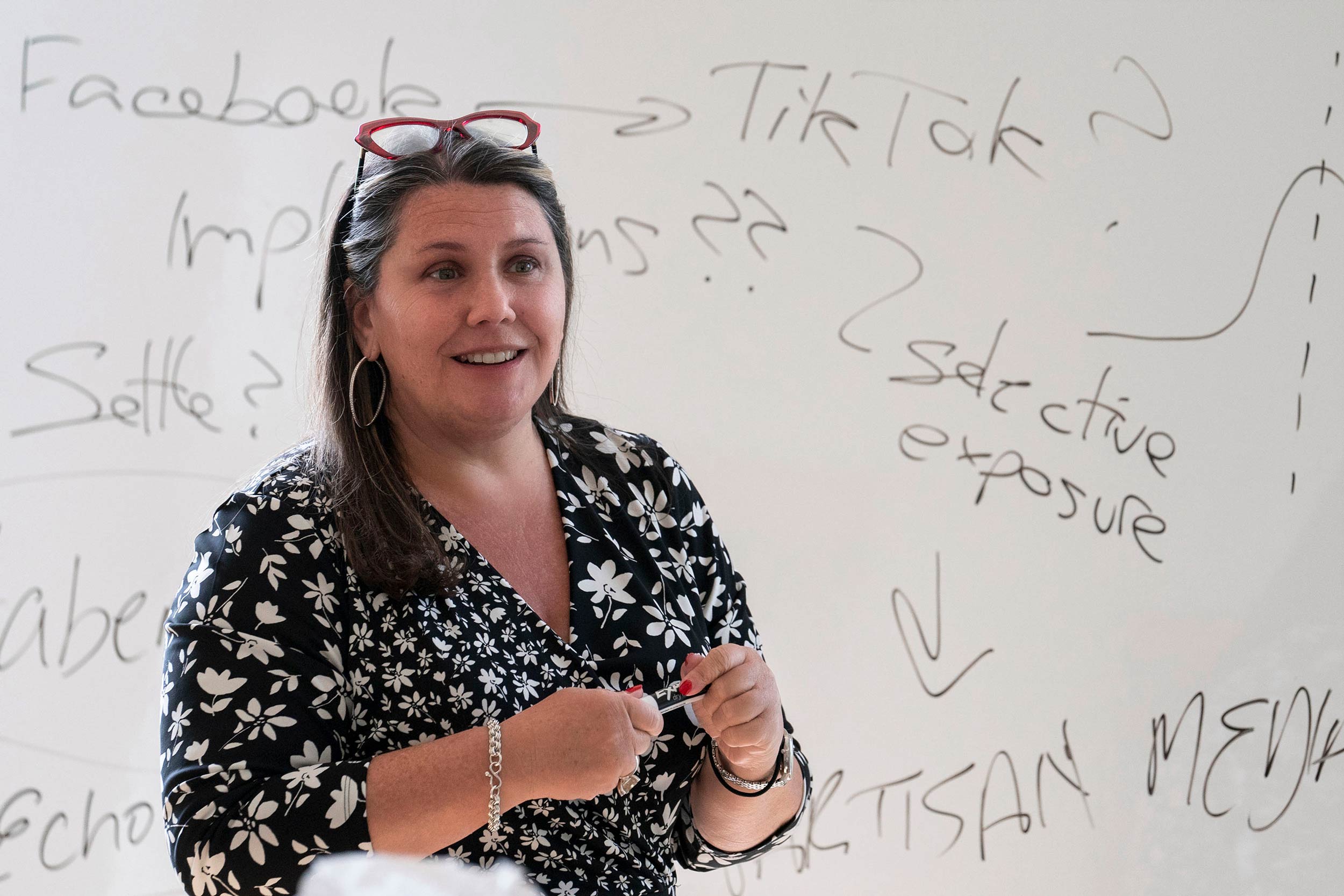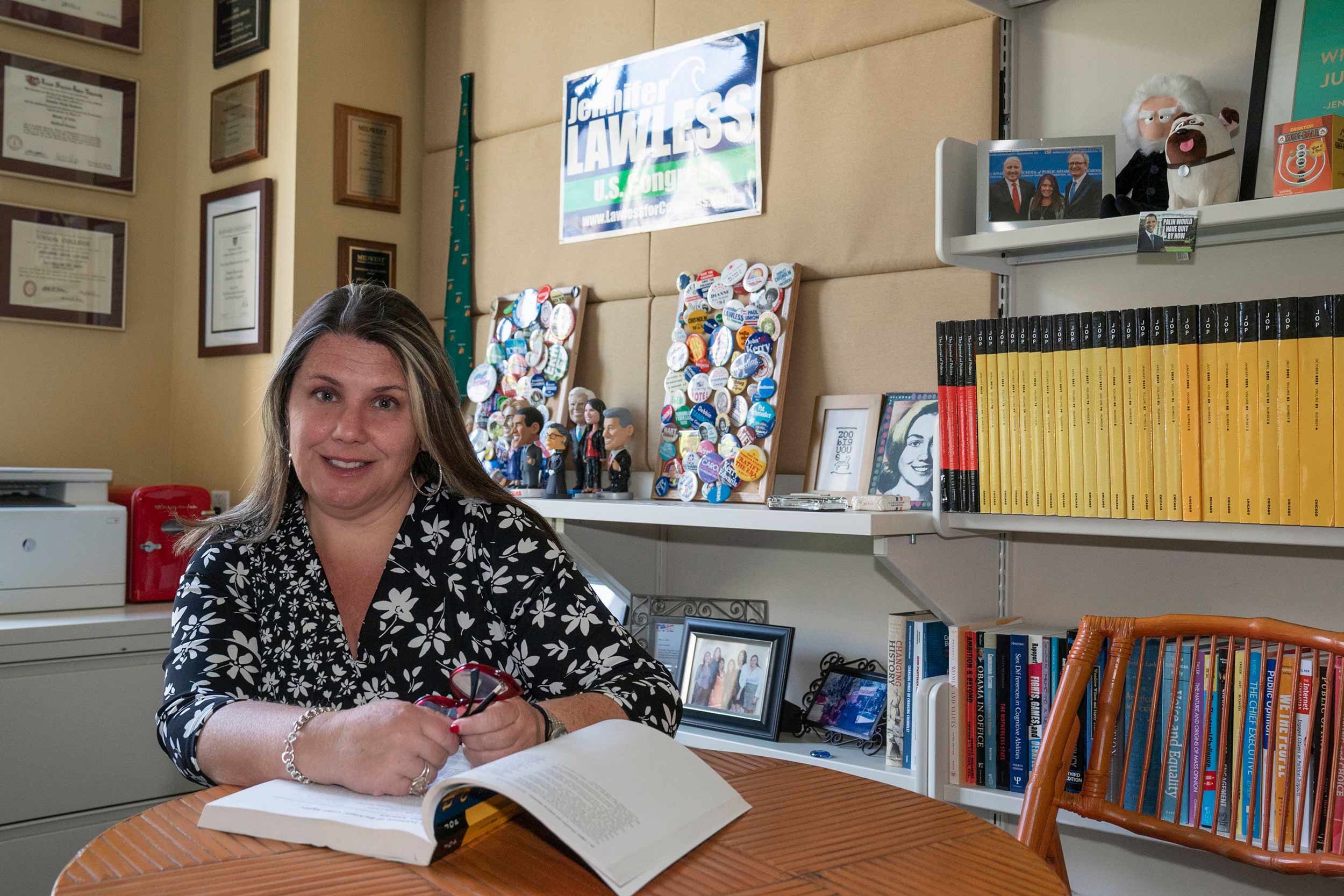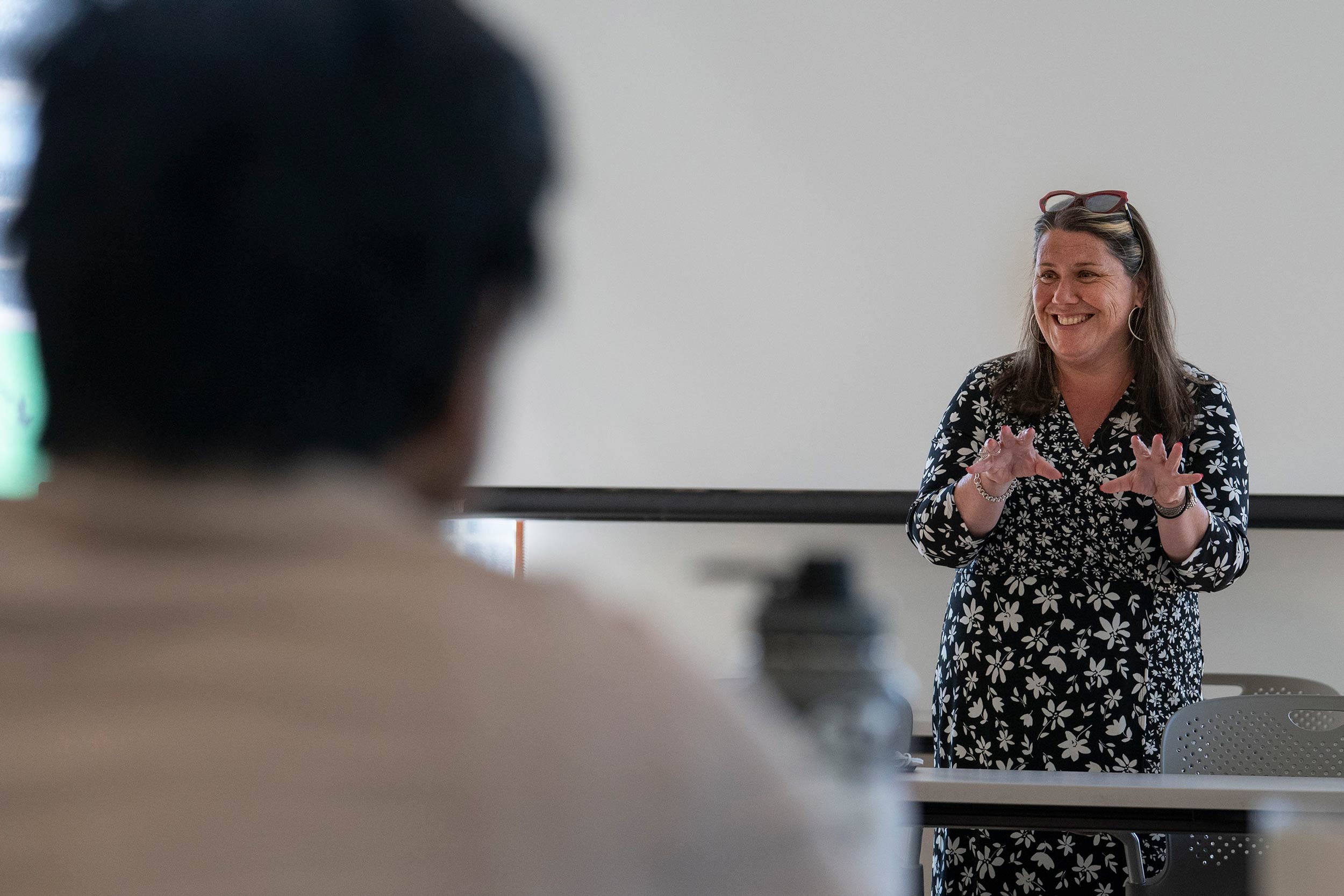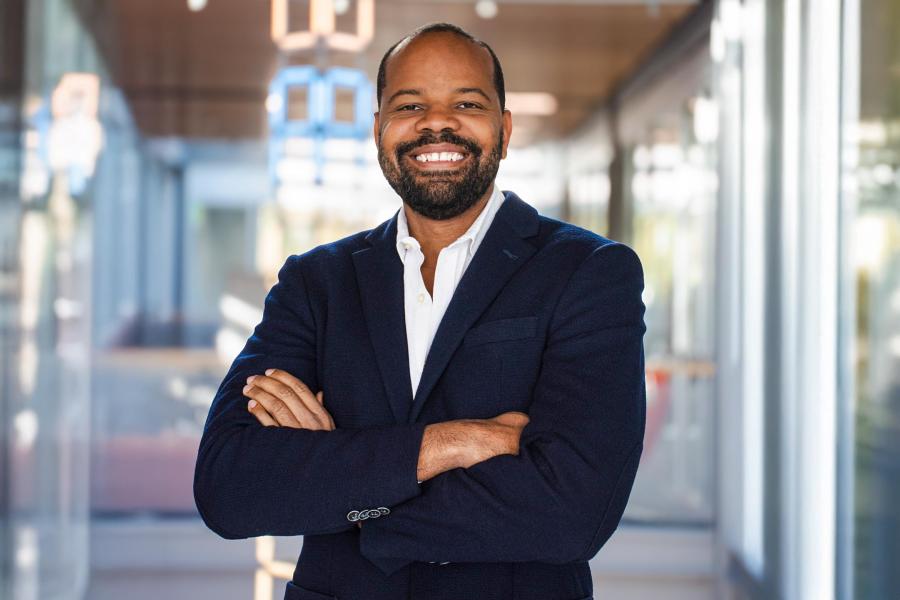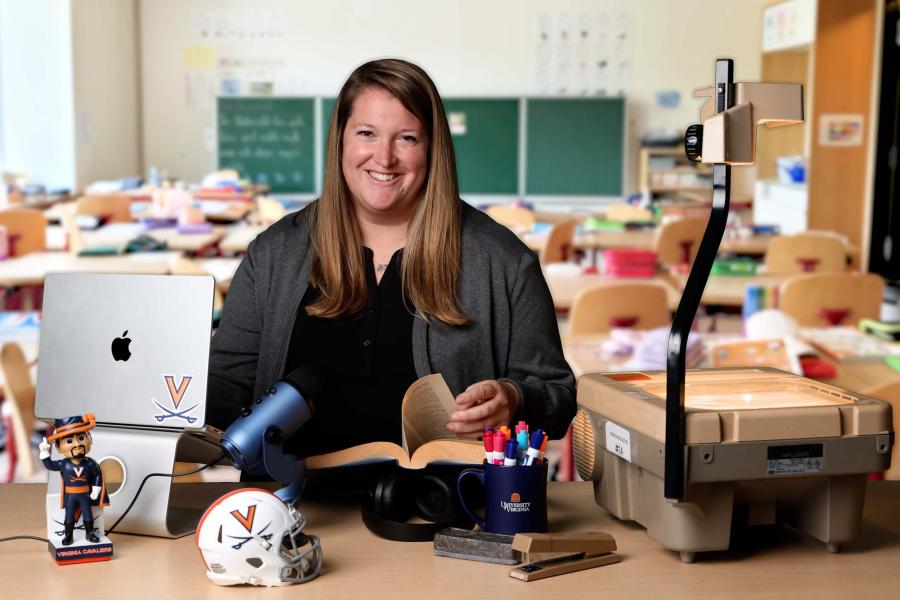Her students say they find Lawless engaging, funny and supportive.
“The Army gave me three years to complete my graduate coursework and defend my dissertation,” said U.S. Army Maj. Joseph Amoroso, a commissioned field artillery officer who earned doctoral and master’s degrees in political science from UVA.
His research focused on American political behavior and civil-military relations, specifically studying how military experience influences participation in electoral politics. He serves as an instructor of American politics in the Department of Social Sciences at the U.S. Military Academy at West Point.
“From our first meeting, Jen made it clear that she was invested in my success. She helped me translate my seemingly disparate interests into an actionable research agenda,” he recalled. “She had an immediate sense for the type of dissertation I could write and gave me pragmatic advice on how to move forward, as if she’d thought about my specific topic for years.”
Jacob Lollis, a doctoral candidate in the Department of Politics, said Lawless’ work is “rigorous, top-notch social science. She has written foundational work explaining why women are underrepresented in American political institutions.”
Richard Burke, a graduate student in the Department of Politics, said Lawless also has a talent for putting her students at ease.
“When I gave my practice job talk last year before the entire department – a super nerve-wracking event – Jen was the first to ask a question. And before asking the question, she said, ‘This is the best practice job talk I’ve ever attended.’ It really took the pressure off me,” Burke said. “It was very kind of her because it influenced the momentum of the questions and answers.”
Lawless wasn’t born into politics, but she did grow up with it.
“In our household, politics was always something that was talked about,” she said. “Not that my parents would consider themselves political junkies. I don’t think they think of themselves like that. But we always had lawn signs up for the local candidates, I always went with my parents to vote, and there was always this sense that the president makes important decisions.”
Her interest in affairs of state grew deeper as she grew older. She watched the Iran hostage crisis in the late 1970s, the Iran-Contra hearings in the 1980s and the confirmation hearings for U.S. Supreme Court Justice Clarence Thomas in the 1990s.
“I was in 11th grade and I remember rushing home from school to watch the hearings. I remember very vividly Anita Hill being grilled by an all-male Senate Judiciary Committee,” Lawless recalled. “That was the turning point. It was like, ‘Oh my gosh, we need more women in politics.’ We need qualified women in politics and we need to make sure that we’re treating women in society in a fair and equitable way.”
While Lawless was a faculty member at Brown University, an incumbent member of Congress decided that he would not seek a vacated Senate seat.
“He said that he was very comfortable in the seat he was in, and that’s not how any accountable representative should ever talk,” she said. “They should be running scared. They should always be trying to represent their constituents. And he, in particular, had voted 27 times against a woman’s right to choose. That was an issue that was very, very important to me.”
The race was on.
